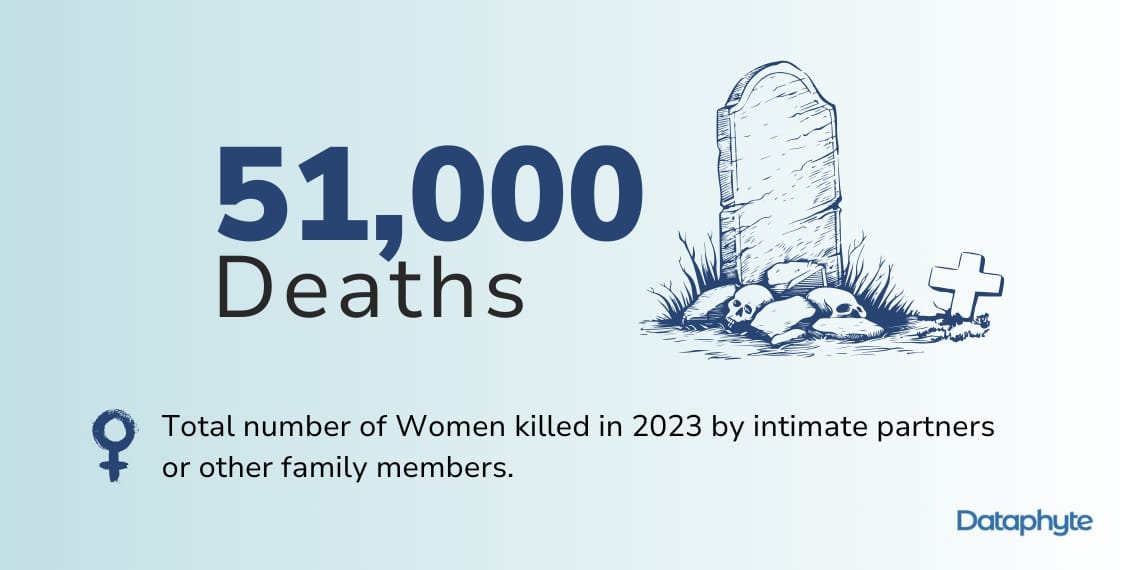On January 12th this year, Timileyin Ajayi was arrested on suspicion of killing and dismembering the body of his girlfriend, Salome Adaidu. According to Ajayi, the reason was that he discovered her infidelity when she came to visit him.
The tragic death of Salome is the latest in a growing number of femicide cases in Nigeria, one that has women’s rights advocates in a state of alarm. They have described femicide as a serious human rights violation and a pressing social issue that requires attention and efforts to prevent such occurrences.
There are a number of factors that contribute to the prevalence of femicide, including discrimination, the presence of a culture of violence, impunity, poverty, among other factors.
Over the years, there has been a growing number of femicide incidences where girls and young women were recorded as victims. This has raised concern among both men and women.
For instance, X-user (formerly Twitter), Chibuike Oko-isu mentioned that “the rate of femicide in this country is alarming. More worrying is that a lot of these criminals get away with murder. How do we ensure justice in a country where lawlessness is the norm?’’
Some Femicide Cases in Nigeria
The murder of Salome Adaidu is not the only recent case of femicide in Nigeria.
A 25-year-old man, identified simply as Elisha, was arrested on May 14, 2024 for allegedly killing his lover in Uyo, Akwa Ibom State in a ritual murder.
Similarly, Christiana Idowu, a female student at the Federal University of Agriculture in Abeokuta, Ogun State, was kidnapped and killed on August 19, 2024 by one Ayomide Adeleye, who had previously been accused of murdering his ex-girlfriend in 2018.
In July 2023, Benjamin Best, also known as Killaboi, killed Augusta Osedion, his girlfriend who was a 300-level student of Biological Chemistry at UNIPORT.
Other cases include the August 6, 2024 arrest of Fatai Mogaji in Lagos State for allegedly stabbing his ex-girlfriend, Opeyemi Shoyinka, to death, and the chilling murder of 19-year-old Abigail Damilola, a student at the Federal University in Lokoja, in September 2024. Damilola’s killer, 20-year-old Jeremiah Samson, was arrested after dismembering and burying her remains in a shallow grave.
Rising cases of femicide around the world
Femicide represents the most extreme manifestation of gender-based violence against women and girls. It is a form of gender-based violence that affects all regions and countries worldwide.
A global femicide report from the UN Women and the UN Office of Drugs and Crime shows that around the world, 51,000 women were killed in 2023 by intimate partners or other family members.
Also, in Africa, 21,700 femicide cases were recorded in 2023 as cases recorded per 100,000 women.
The statistical framework for measuring gender-related killings of women and girls, commonly referred to as "femicide", was jointly developed by the United Nations Office on Drugs and Crime (UNODC) and UN Women. This framework was approved by the United Nations Statistical Commission in March 2022 and identifies three types of femicide:
1. Intentional homicides of women and girls perpetrated by intimate partners
2. Intentional homicides of women and girls perpetrated by other family members
3. Intentional homicides of women and girls committed by perpetrators other than intimate partners or other family members.
However, the World Health Organisation says Violence against women takes multiple forms such as Femicide, Sexual violence, Psychological violence, Trafficking, Forced and early marriage, and Female genital mutilation.
How Femicide Can Be Addressed
The report recommends that the following steps are taken to address femicide:
Implementing policies and programs aimed at improving gender equality in education, government, labour force participation, and earnings.
Advocacy for an international zero-tolerance policy on violence against women and girls, and implementing policies increasing support and reparation for female survivors of violence.
Establishment of specialised units within the police, judiciary and prosecution services to investigate and prosecute offences related to gender-based violence, including femicide, as is done in countries like Canada and Sweden.
Also, there should be interventions focusing on changing societal norms and attitudes among women, men, girls, and boys through educational curricula and courses. These tools are designed to develop relationship skills and promote a better understanding of acceptable behaviours and roles for both genders in society.
Adequate protection from physical harm should be provided to all members of society, especially the vulnerable. It is imperative that these victims get justice as a message to others, and as a partial recompense to those the victims left behind.
Thanks for reading this edition of SenorRita. It was written by Kafilat Taiwo and edited by Joachim MacEbong.





